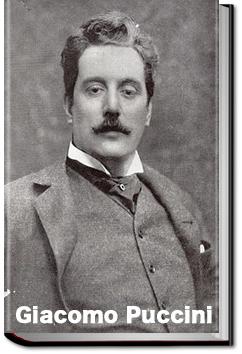UNLIMITED Audiobooks and eBooks
Over 40,000 books & works on all major devices
Get ALL YOU CAN for FREE for 30 days!
Giacomo Puccini
Wakeling Dry
Book Overview:
This biography of Puccini was written while the composer was at the height of his career. Besides the usual biographical information, the author summarizes and discusses Puccini's works to this point, including Le Villi, Edgar, Manon Lescaut, La Boheme, Tosca, and Madama Butterfly (which was in production at the time of this writing).
This biography of Puccini was written while the composer was at the height of his career. Besides the usual biographical information, the author summarizes and discusses Puccini's works to this point, including Le Villi, Edgar, Manon Lescaut, La Boheme, Tosca, and Madama Butterfly (which was in production at the time of this writing).
How does All You Can Books work?
All You Can Books gives you UNLIMITED access to over 40,000 Audiobooks, eBooks, and Foreign Language courses. Download as many audiobooks, ebooks, language audio courses, and language e-workbooks as you want during the FREE trial and it's all yours to keep even if you cancel during the FREE trial. The service works on any major device including computers, smartphones, music players, e-readers, and tablets. You can try the service for FREE for 30 days then it's just $19.99 per month after that. So for the price everyone else charges for just 1 book, we offer you UNLIMITED audio books, e-books and language courses to download and enjoy as you please. No restrictions.
CHURCH OF S. PIETRO, SOMALDI, WHERE PUCCINI WAS ORGANIST
There is no definite record of any specific continuation of studies while Puccini was contributing in a questionable way to the dignity of the church's service; but in 1877 there was an exhibition at Lucca, and a musical competition was announced, a setting of a cantata Juno, and young Puccini entered. As happened13 with Berlioz, so too the young composer's work was rejected, as not conforming in any way with the accepted canons of the art of music. . . . Read More
Try now for FREE!

"Love your service - thanks so much for what you do!"
- Customer Cathryn Mazer
"I did not realize that you would have so many audio books I would enjoy"
- Customer Sharon Morrison
"For all my fellow Audio Book & E-Book regulars:
This is about as close to nirvana as I have found!"
- Twitter post from @bobbyekat


